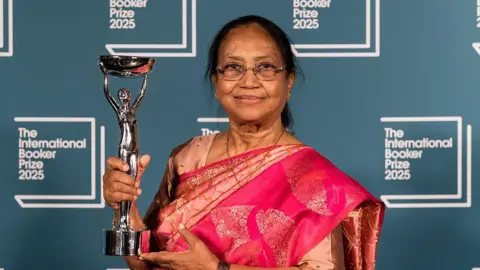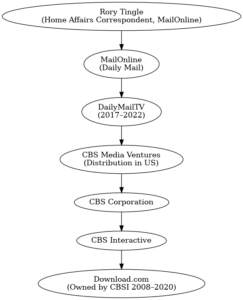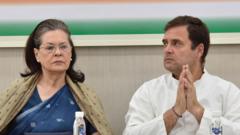Recent allegations surrounding electoral integrity in India have ignited a significant political firestorm, as opposition parties accuse the Election Commission of India (ECI) of facilitating vote manipulation that allegedly favors the ruling Bharatiya Janata Party (BJP) in the closely contested 2024 general elections. The controversy erupted this week, forcing the adjournment of parliament following heated demands from opposition lawmakers, including Congress party leader Rahul Gandhi, for a thorough discussion on the electoral process's integrity.
On August 7, Gandhi raised alarms about potential irregularities at a press conference in Delhi, where he shared claims of widespread voter manipulation. His assertions gained traction as he rallied support from a coalition of opposition leaders, who have echoed his calls for accountability. The BJP and the ECI, however, have vociferously denied these allegations, labeling them as unfounded.
Gandhi's accusations point to specific instances of alleged vote tampering, particularly concerning electoral data from the Mahadevapura constituency in Bangalore Central. He revealed that the voter list reportedly contained over 100,000 suspicious entries, including duplicates and invalid registrations—claims that have since been hotly contested by the ECI.
During the elections, Prime Minister Narendra Modi achieved a notable third term, but the BJP's coalition secured fewer seats than anticipated, with Congress winning 99 out of 543. According to Gandhi, these irregularities cost his party approximately 48 critical seats, leading to calls for the release and public auditing of digital voter rolls.
In response, the ECI dismissed Gandhi's claims as "absurd," demanding that he either retract his accusations with a formal apology or provide sworn testimony to substantiate his assertions. They maintain that the Congress party failed to raise formal objections during the electoral roll revision process and emphasized their standard practice of retaining CCTV footage for election periods only.
The uproar coincides with an ongoing controversy in Bihar over a significant electoral roll revision exercise, which has resulted in the deletion of millions of names. Critics argue the swift process has disenfranchised numerous citizens, particularly among marginalized communities and migrants. As the Supreme Court considers legal challenges related to these deletions, it has suggested there is a troubling deficit of trust in the electoral system, while warning that it would intervene if evidence of widespread disenfranchisement surfaces.
As Gandhi intensifies his campaign against perceived vote manipulation on a national scale, stating, "the story is not over yet," the implications of these allegations continue to reverberate across India's vibrant democratic landscape, with pressing calls for electoral reform and transparency.
On August 7, Gandhi raised alarms about potential irregularities at a press conference in Delhi, where he shared claims of widespread voter manipulation. His assertions gained traction as he rallied support from a coalition of opposition leaders, who have echoed his calls for accountability. The BJP and the ECI, however, have vociferously denied these allegations, labeling them as unfounded.
Gandhi's accusations point to specific instances of alleged vote tampering, particularly concerning electoral data from the Mahadevapura constituency in Bangalore Central. He revealed that the voter list reportedly contained over 100,000 suspicious entries, including duplicates and invalid registrations—claims that have since been hotly contested by the ECI.
During the elections, Prime Minister Narendra Modi achieved a notable third term, but the BJP's coalition secured fewer seats than anticipated, with Congress winning 99 out of 543. According to Gandhi, these irregularities cost his party approximately 48 critical seats, leading to calls for the release and public auditing of digital voter rolls.
In response, the ECI dismissed Gandhi's claims as "absurd," demanding that he either retract his accusations with a formal apology or provide sworn testimony to substantiate his assertions. They maintain that the Congress party failed to raise formal objections during the electoral roll revision process and emphasized their standard practice of retaining CCTV footage for election periods only.
The uproar coincides with an ongoing controversy in Bihar over a significant electoral roll revision exercise, which has resulted in the deletion of millions of names. Critics argue the swift process has disenfranchised numerous citizens, particularly among marginalized communities and migrants. As the Supreme Court considers legal challenges related to these deletions, it has suggested there is a troubling deficit of trust in the electoral system, while warning that it would intervene if evidence of widespread disenfranchisement surfaces.
As Gandhi intensifies his campaign against perceived vote manipulation on a national scale, stating, "the story is not over yet," the implications of these allegations continue to reverberate across India's vibrant democratic landscape, with pressing calls for electoral reform and transparency.

















